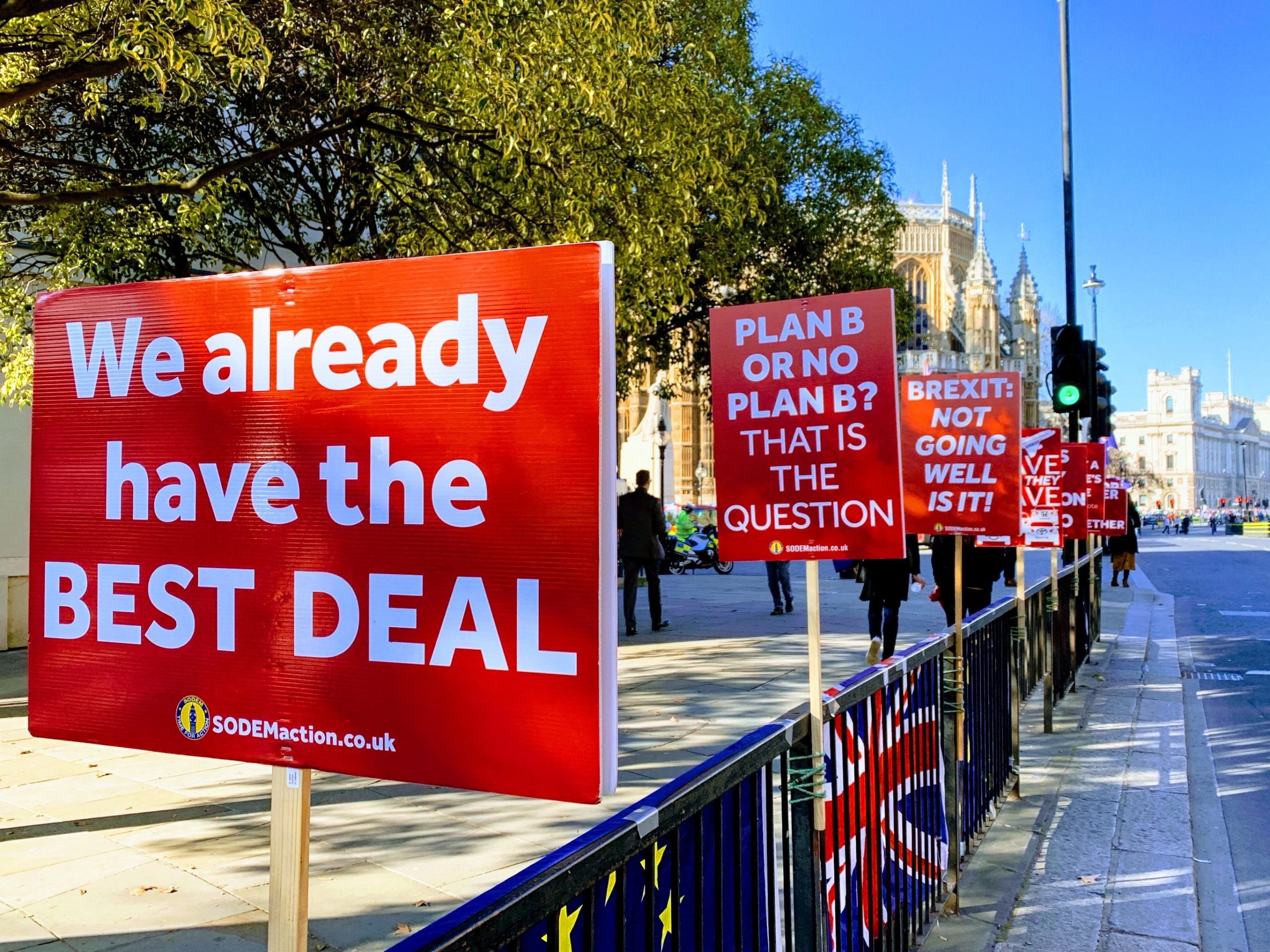News
A ‘stop Brexit’ sticker and suffragette colours: it’s really not clear what can get you kicked out of parliament

(File Photo: John Cameron/Unsplash)
Around 1 million visitors enter the UK parliamentary estate in Westminster every year. They go through airport-style security, and hand over any “restricted items” before they enter. Many of these “restricted items” are fairly obvious, like climbing gear and Swiss army knives. It’s fairly easy to understand why they’re not allowed on parliamentary premises.
Some “restricted items” are much more ambiguous, though, as one woman found out recently. Anna Betz says she was asked by parliamentary security to remove a “stop Brexit” sticker from her laptop as she entered the estate.
The list of restricted items does include “political or offensive slogan materials including clothing”. In many cases, establishing whether a particular item is offensive – or political – is a judgment call. The security guards were allegedly concerned that Betz might use her laptop to protest, holding it in the air to create a makeshift placard (another restricted item in parliament).
Clearly, there are legitimate concerns about protests inside Westminster (not just outside it). Parliament is a symbolic, ceremonial space. It is also a workplace where essential parliamentary business such as debate, legislation, oversight and scrutiny is carried out. The people responsible for this business – MPs, peers and staff – must be able to access the building freely without hindrance or intimidation.
Parliament has released a poster listing restricted items, but “offensive” and “political” items are absent. That might be because parliament doesn’t want to provide pictures of them or because there’s no easy way to categorise them. In any case, there is an important question here: what makes material “political”?
I contemplated “political materials” in a 2020 article about COVID-era changes at Westminster. Earlier that year, the House of Commons Speaker rebuked Labour MP Justin Madders for having a vintage Labour poster in the background when he joined PMQs via Zoom. The poster was called out as a “political slogan”. More recently, a group of women were asked to leave a committee room in the Scottish parliament for wearing Suffragette colours.
The Scottish parliament has since offered an apology to the women who were told to leave. So far, the UK parliament has not offered an apology to Betz.
This difference in outcome is intriguing. Both of these cases have certain similarities, so we would expect a similar response. For example, they both refer to political campaigns that have nominally concluded, but retain a contemporary resonance.
There appears to be substantial inconsistency, then, not only between these institutions, but within them. Reflecting on the guard who made her cover her laptop sticker at Westminster, Betz said she doubted that “he understood why he was doing it”.
One of the women asked to leave the Scottish parliament noted: “The security officer said it was his manager who had ordered our removal. I am still waiting to hear from him for an explanation.”
Despite the guards’ concerns that she might use her laptop as a political placard, Betz pointed out that the sticker “had been there for years” and that she was visiting Westminster “for the opening of an exhibition”. This raises an important notion: that the circumstances of a person’s visit to parliament and the relevance of the slogan (in this case, a policy that has already been enacted), can and should be considered when identifying “political” or “offensive” material.
The importance of democratic access
In response to these incidents, both parliaments have been keen to stress their democratic credentials. Commenting on the case of Betz, a spokesperson reiterated Westminster’s commitment to “democratic access”. Commenting on behalf of the Scottish parliament, presiding officer Alison Johnstone stated that “Parliament wishes people to engage with the democratic process”.
These statements raise more questions than they answer. Democracy is, of course, a contested concept, but many definitions of it are based on political pluralism. According to such definitions, there is no expectation, nor desire, for people to “leave their politics at the door” – quite the contrary.
It is paradoxical for parliaments to present themselves as democratic yet avoid political slogans and materials. After all, despite being regarded as neutral or impartial, parliaments are definitively political institutions. They are venues for political debates; they are workplaces for politicians.
Both the Scottish and UK parliaments have voiced a commitment to “democratic access” and public engagement with the democratic process. But how do people engage with the democratic process if not through politics? And what is politics without symbols and slogans?
Parliament must establish its own answers to these questions. Crucially, it must communicate these answers more effectively to its staff and to the public.
There is an important difference between politics and protest. As long as a political symbol or slogan does not disrupt parliamentary proceedings, it should be considered with a great deal more nuance than these incidents demonstrate.
Arbitrary, opaque decision making exacerbates an asymmetry of power between parliaments and the people they represent. Parliaments are already widely viewed as inaccessible, technocratic institutions that are several steps removed from public concerns and values. A lack of clarity as to what visitors can bring with them will only reinforce these perceptions.
Until then, there will be further incidents of people not being able to access parliaments. Seemingly arbitrary distinctions will continue to be drawn between colourful scarves, stickers, rainbow lanyards and wearing a blue tie during PMQs. If democratic institutions want the right to keep people out, they must be clear about the rules.![]()
Alex Prior, Lecturer in Politics, London South Bank University
This article is republished from The Conversation under a Creative Commons license. Read the original article.





















